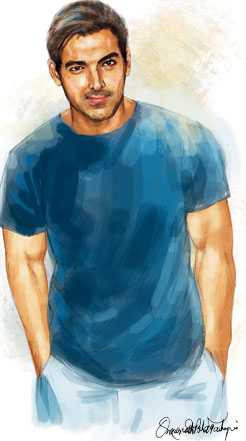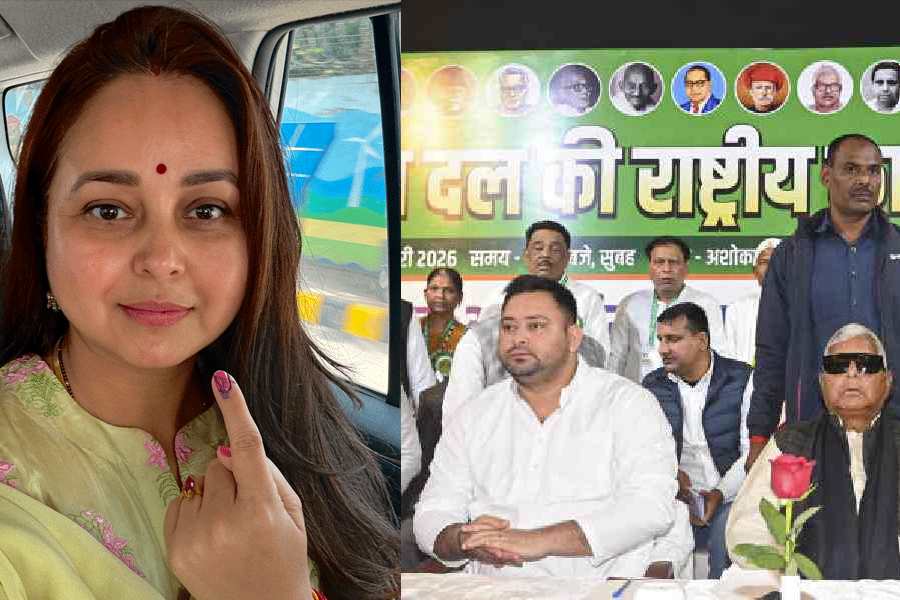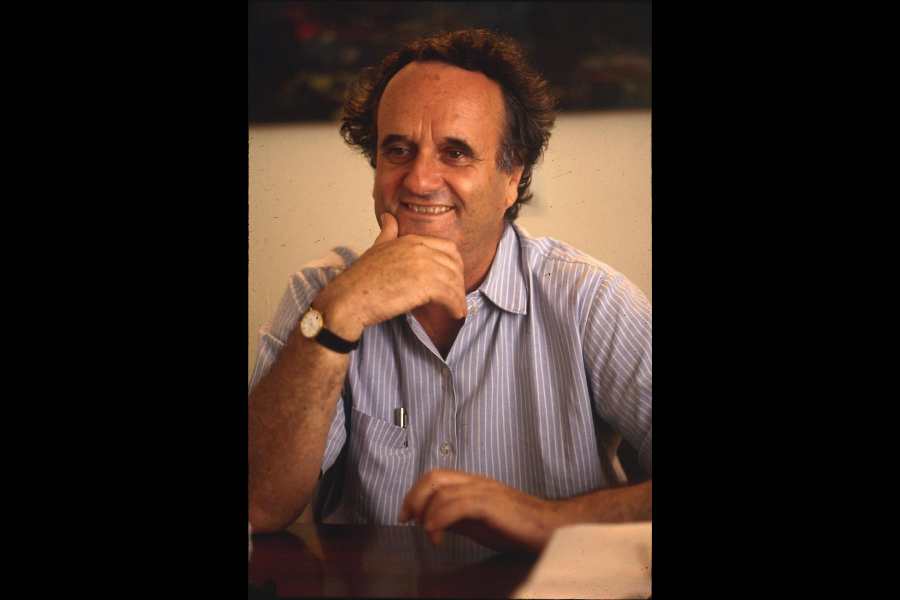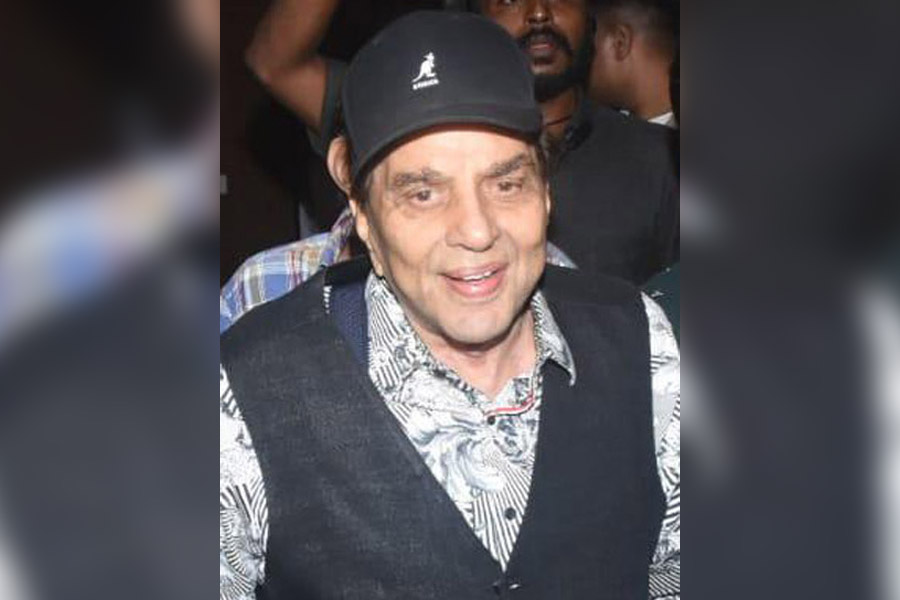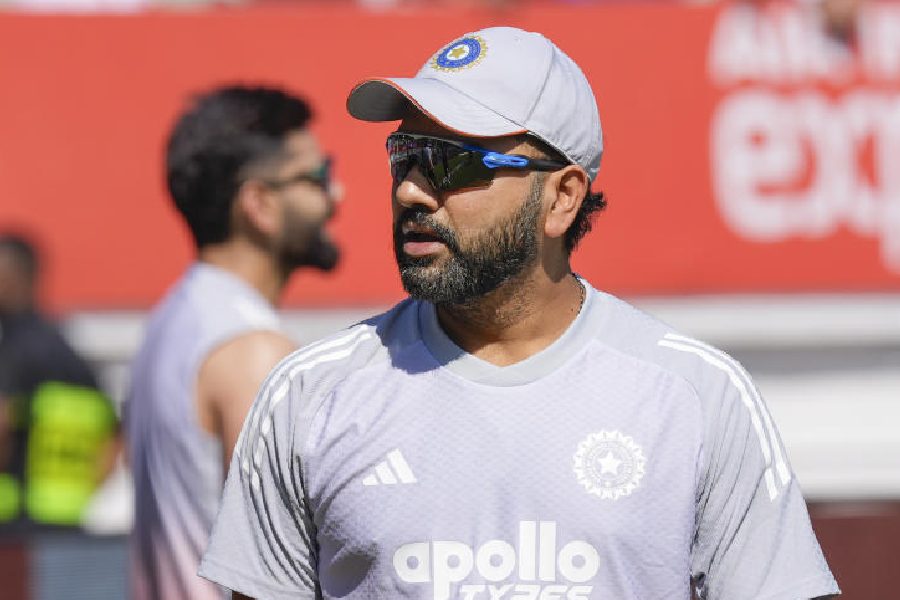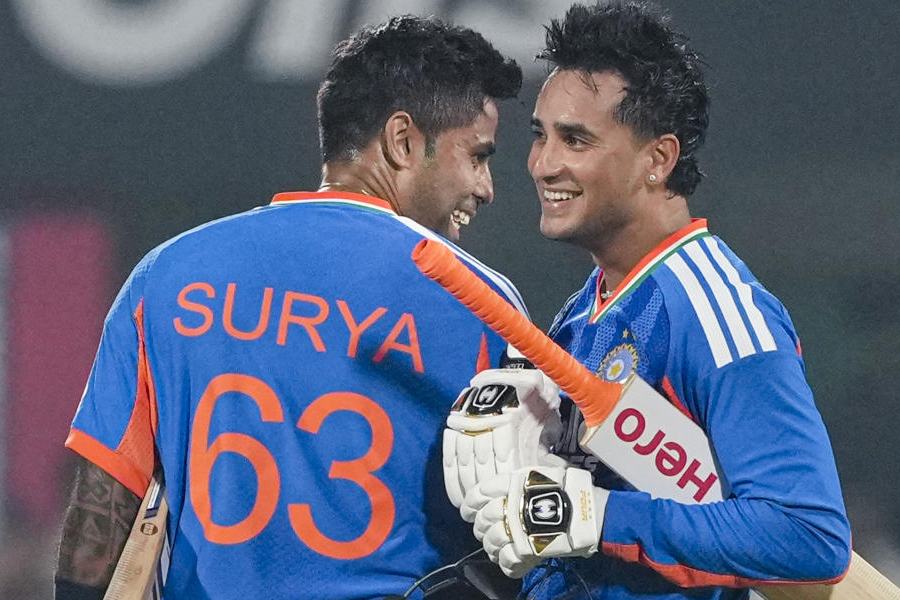 |
You wouldn’t think so, but John Abraham certainly believes that he and Manohar Surve have something in common. Abraham, of course, is the Bollywood actor who can never be mentioned without a reference to his drop-dead gorgeous looks. Surve, on the other hand, was a dreaded gangster who once ruled Mumbai.
Abraham says that Surve, better known as Manya, was an arts graduate from Mumbai’s Kirti College, who read philosophy and psychology and was drawn into the world of crime by his step-brother, a feared thug in Dadar. Abraham earned a bachelors degree in economics from another Mumbai college, Jai Hind, a masters degree in management studies from the Mumbai Educational Trust and worked as a media planner before getting into modelling and acting. But that’s not really what he means.
“He was an ‘outsider’ in his world like me,” says the star. “It was a world far removed from the one I’d grown up in. At times I felt like a commodity, known more for the commercials I appeared in and the brands I endorsed than for who I was. I was treated like a clothes horse. Conversations buzzed around me and revolved only around my looks till I’d stand up for myself and point out that I could hold a conversation of my own too,” he reminisces.
Even today the oohs and aahs that follow him around have much to do with the looks that he inherited from Abraham John, his Malayalee Syrian Christian father, and his Parsi mother Feroza, along with his toned-to-perfection body. The latter is another common connect with Manya who won a body building contest and was voted Mumbai Shri.
Abraham has been crisscrossing the country, trying to acquaint people with Manya, who was gunned down in the first-ever recorded encounter by the Mumbai Police in 1982, bringing the curtains down on a two-year reign of terror. The actor’s latest film Shootout at Wadala, which opened on Friday, is a fictionalised biopic of Manya, based on Husain Zaidi’s bestselling book Dongri to Dubai.
Abraham, who has just checked into a hotel in Delhi, describes the film as his “second coming”. And that’s saying something, for the actor is not into making brash or immodest remarks. In fact, even after a decade in show business, he still hasn’t acquired the trappings of a star, but retains the smiling etiquette of a well-brought up boy.
It’s this “gentlemanly” behaviour that — among the more obvious differences — sets him apart from Manya, who was ruthless with his classmates and rough with the woman he loved. But those are the traits that the actor focuses on in the film. “You’ll see no traces of the John you know in the Manya you never knew,” he promises, remembering how shaken his co-star Kangna Ranaut was to discover the “animal” in him during the shoot. “I’d joke about having left John Abraham behind.”
That’s only partly true because a quick scan through his career graph will reiterate that the actor himself has usually been “good” when he’s played “bad”. Refusing to play safe with a formulaic love story, he debuted with Pooja Bhatt’s Jism (2003) in which he played an impoverished, alcoholic lawyer seduced by his materialistic lover into killing her millionaire husband.
“It was a calculated risk but I was confident that it would pay off because I had been taught the higher the risks, the greater the profits,” he says, sounding every inch the economics graduate that he is. The film bagged him a popular award for Most Promising Male Debut.
Encouraged, he gambled with an obsessive stalker in Aetbaar (2004) and a biker robber in Dhoom (2004). He was an assassin with a hit list in Karam (2005) and a man who will sell a 14-year-old girl to avenge his sister’s humiliation in Zinda (2006). The brash rich kid of Taxi No. 9211 (2006) metamorphosed into a chain-smoking narcissist in No Smoking (2007) and a terrorist in New York (2009).
In this year’s two releases, John has played a two-timing casino owner in Race 2 and a chauvinistic loser in I Me Aur Main. “People like me when I’m a not-so-good boy whereas when I play a good boy the response isn’t quite so positive. Watching them clap and cheer for the biker boy in Dhoom or the bad boy in Race 2, I’ve often wondered what I was doing wrong or should that be right,” he wonders, sounding suitably bemused.
Good or bad, right or wrong, he is on roll. Abraham has been so busy with his promotional rounds that he gives the interview a break, promising to pick up the threads once he returns to Mumbai. But his schedule is so busy that despite the valiant attempts of his manager, he can’t spare the time. Finally, when he calls, he is on his way to the airport to catch a flight to another city for another promotional tour. Phew, that’s the charmed life of a movie star!
It’s not surprising that his architect father, homemaker mother and his younger brother Alan have kept their distance from his jet-setting world, and consciously steered clear of the controversies that have sparked tabloid headlines. “They are shy, introverted people who have never had anything to do with the media. They are proud of me, but neither my father nor my brother is into Hindi films and watch them only for me,” he admits.
His dad’s tastes run towards the off-beat — preferring to see his son in films such as No Smoking and New York. Among John’s commercial hits, it’s Dhoom and Dostana (2008) that everyone, including his mother, brother and sister-in-law, love.
“Mom, of course, loves every film of mine and even rationalises why the box office duds should have worked. She is completely biased,” the son says, laughing fondly. “She even liked I Me Aur Main when most people can’t even get its title right,” he adds, referring to the 2013 film which Abraham took over and released — though it was not his production.
The film was a debacle that took the trade by surprise. But Abraham wasn’t surprised. “Whenever I have gone by my innate intelligence, the film has worked despite the misgivings of others. But whenever I have handed over that confidence to someone else and let them tell me what to do, the film has taken a tumble. It’s happened 10 times so far. You could say I’m a fool for repeating the same mistake, but I enjoy the process of failure, not just because I’m learning something new each time, but because it reinforces my belief in my gut instincts,” he asserts.
If that was a failure, Vicky Donor (2012) certainly wasn’t. The film was the debut production of Abraham’s production house J.A. Entertainment. Despite its unconventional story about a professional sperm donor, it was a film he believed in completely, resolutely refusing to join the cast and keeping his contribution limited to an item song and some pre-release promotion. The film was last year’s surprise hit and is still winning him awards.
Right now, he’s gung-ho about J.A. Entertainment’s next home production Madras Café, a political thriller that unfolds against the backdrop of the conflict between Tamils and the Sri Lankan government. “We’ve finished shooting. Shoojit (director Shoojit Sircar) is busy with post production. We’re gearing up for an August 30 release. It’s a film we are extremely proud of but not overconfident in terms of box office performances,” he states.
Madras Café will be followed by Hamara Bajaj and a number of other films Sircar and Abraham are planning together. The idea, he says, is to explore new space and genres. “You’ll see a lot of the John you know in films such as Dostana 2, but you’ll see a John you have never seen in films like Shootout at Wadala and Madras Café. The higher the risk, greater the profits,” he reiterates.
Okay, we got the economics, but what about the kinetics? At 40, he’s still one of the country’s most eligible bachelors. Surely his parents and happily-settled sibling must be prodding him to take the plunge? “No, they don’t,” he says shortly, suddenly not interested in taking this conversation further knowing where it’s leading. “I’ve run out of time completely. I have a flight to catch,” he says.
There is time only for one last question: What’s his take on relationships? “It’s beautiful when you’re involved with the right person,” he replies.
And with that John Abraham is up and flying again.

